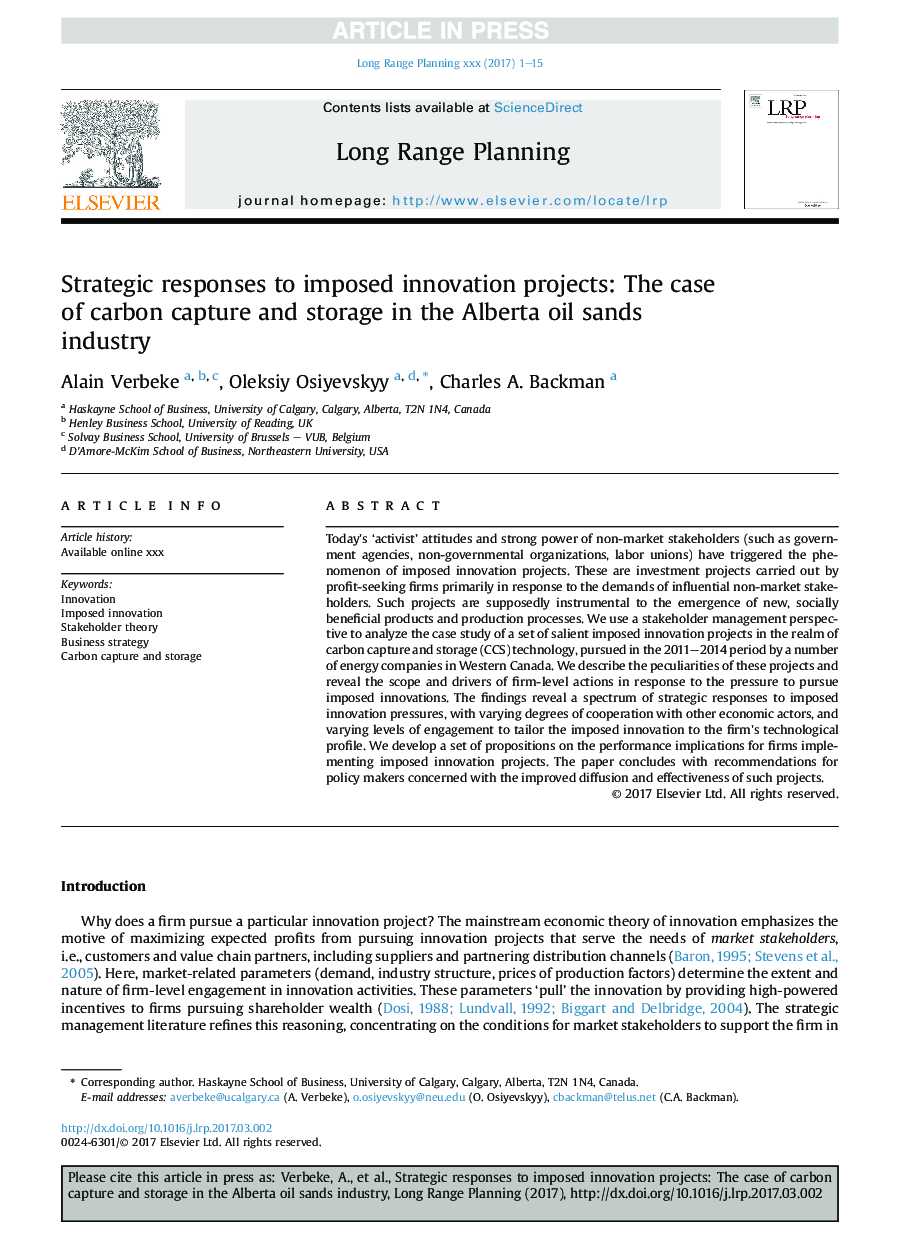| Article ID | Journal | Published Year | Pages | File Type |
|---|---|---|---|---|
| 5110237 | Long Range Planning | 2017 | 15 Pages |
Abstract
Today's 'activist' attitudes and strong power of non-market stakeholders (such as government agencies, non-governmental organizations, labor unions) have triggered the phenomenon of imposed innovation projects. These are investment projects carried out by profit-seeking firms primarily in response to the demands of influential non-market stakeholders. Such projects are supposedly instrumental to the emergence of new, socially beneficial products and production processes. We use a stakeholder management perspective to analyze the case study of a set of salient imposed innovation projects in the realm of carbon capture and storage (CCS) technology, pursued in the 2011-2014 period by a number of energy companies in Western Canada. We describe the peculiarities of these projects and reveal the scope and drivers of firm-level actions in response to the pressure to pursue imposed innovations. The findings reveal a spectrum of strategic responses to imposed innovation pressures, with varying degrees of cooperation with other economic actors, and varying levels of engagement to tailor the imposed innovation to the firm's technological profile. We develop a set of propositions on the performance implications for firms implementing imposed innovation projects. The paper concludes with recommendations for policy makers concerned with the improved diffusion and effectiveness of such projects.
Related Topics
Social Sciences and Humanities
Business, Management and Accounting
Business and International Management
Authors
Alain Verbeke, Oleksiy Osiyevskyy, Charles A. Backman,
